Click here to go straight to the recipe.
Updated 01/19/21
Update 07/16: I now have a pressure cooker and cook my beans in that. IT IS SO FAST! Read more here.
I don’t eat canned beans (or canned anything for that matter), for several reasons:
- Cans are lined with plastic that often contains BPA. Because of heightened consumer awareness of the hazards of this chemical, food companies have been quick to adopt alternatives—which may pose similar or worse health dangers.
- Cooked dried beans taste better than canned beans. I find that canned beans taste like plastic and have a slimy, mushy texture. Food cooked from scratch always wins.
- I can control what goes into my food when I cook it myself. Canned beans usually have a ton of sodium. Mine don’t.
- Dried beans can cost less than canned. A pound of dried beans makes about three cans worth of cooked beans. Three cans of organic beans will almost always cost more than a pound of dried organic beans.
- Dried beans consume less oil in their transport to the store. That’s because they weigh less.
- Dried beans look good stored in glass jars in your kitchen. Canned beans, not so much.
- I call myself “The Zero-Waste Chef,” so I avoid packaging. I rarely recycle. Don’t freak out. I reduce. The big food and beverage companies would love us all to believe that we can consume as much overpackaged, processed food as we want, anytime we want, because as long as we recycle all that packaging (which doesn’t happen—check out the municipal recycling rates from the EPA), we can continue our unchecked consumption. In reality, recycling is a last resort. So, one reason I don’t eat packaged foods is to cut back on, well, packaging.
Now that I’ve convinced you to avoid canned beans, read on to find out how you can easily cook beans in a slow cooker. (You can also cook them in a pot on the stove.) I’ve chosen black beans for this post.
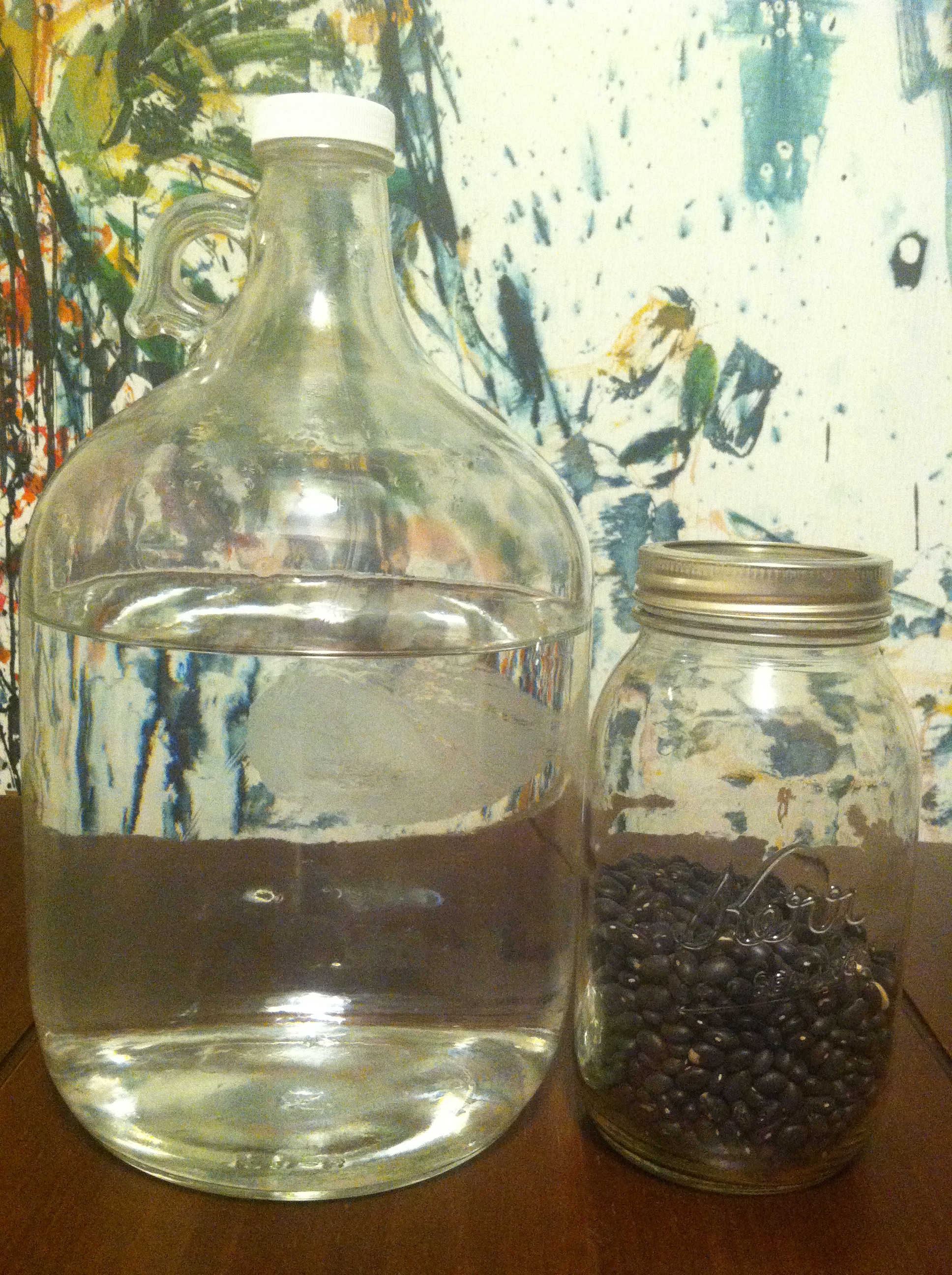
Ingredients
- Beans bought in bulk using a reusable container or cloth bag
- Tap water
My slow cooker is small (about 2 quarts), so I used 1 1/2 cups of beans.
Directions
1. The night before you cook your beans, rinse them in a colander under cool running water.
2. Place rinsed beans in the slow cooker crock. Add a strip of kombu (a type of kelp) to aid with digestibility and reduce gas. Pour water over beans to cover by about two inches. Do not turn on the slow cooker!
3. Let crock sit about eight hours or overnight.
4. The pics above show my beans in the morning. The water in the left image a purplish-black. Drain the beans in a colander and rinse them under cool water. They will have plumped up a bit, as in the image on the right above.
5. Return the black beans to the slow cooker. Add the strip of kombu, or a new strip, if using. Add enough water to cover the beans by about two inches. Cook on low for six to eight hours, or until the beans pass the “5-bean test” (if you eat five beans and all five are tender, then the whole pot is cooked). If one bean fails the test, continue to cook the beans and check them every quarter or half hour. At the end of cooking, the slow cooker will still contain a lot of liquid (as in the image at the top of the post).
If you don’t have a slow cooker, place your beans in a pot on the stove and cover with water. Bring everything to a boil, turn down the heat and simmer for an hour (at least). Make sure you top off the water as it boils off to avoid burning the beans (and damaging your pot).
Beans will keep in the refrigerator for about a week. You can drain them or store them in their liquid. Some recipes, like my spicy black beans, call for the liquid as well as the beans.
Beans will keep in the freezer for about six months. To freeze them along with their liquid, leave at least an inch of space at the top of the jar to allow for expansion. Otherwise your jars may break. Also—and I speak from experience—store in wide mouth jars in the freezer. I’ve had jars with more narrow necks break. You can also simply freeze beans drained.
This slow-cooker method works for all types of beans. Follow the same procedure, but adjust the cooking times. I find black beans cook quite slowly. On the stove, I have to check them constantly, so I prefer cooking them in a slow cooker. Either way, you’ll reap all sorts of benefits cooking them yourself. 🙂
Black Beans
Ingredients
- 1 1/2 cups dried black beans
- Tap water
Directions
1. The night before you cook your beans, rinse them in a colander under cool running water.
2. Place rinsed beans in the slow cooker crock. Add a strip of kombu (a type of kelp) to aid with digestibility and reduce gas. Pour water over beans to cover by about two inches. Do not turn on the slow cooker!
3. Let crock sit about eight hours or overnight.
4. Drain the beans in a colander and rinse them under cool water.
5. Return the black beans to the slow cooker. Add enough water to cover the beans by about two inches. Cook on low for six to eight hours, or until the beans pass the “5-bean test” (if you eat five beans and all five are tender, then the whole pot is cooked). If one bean fails the test, continue to cook the beans and check them every quarter or half hour. At the end of cooking, the slow cooker will still contain a lot of liquid.
If you don’t have a slow cooker, follow first four steps, then place your beans in a pot on top of the stove and cover with water. Bring everything to a boil, turn down the heat and simmer for an hour (at least). Make sure you top off the water as it boils off to avoid burning the beans (and damaging your pot).


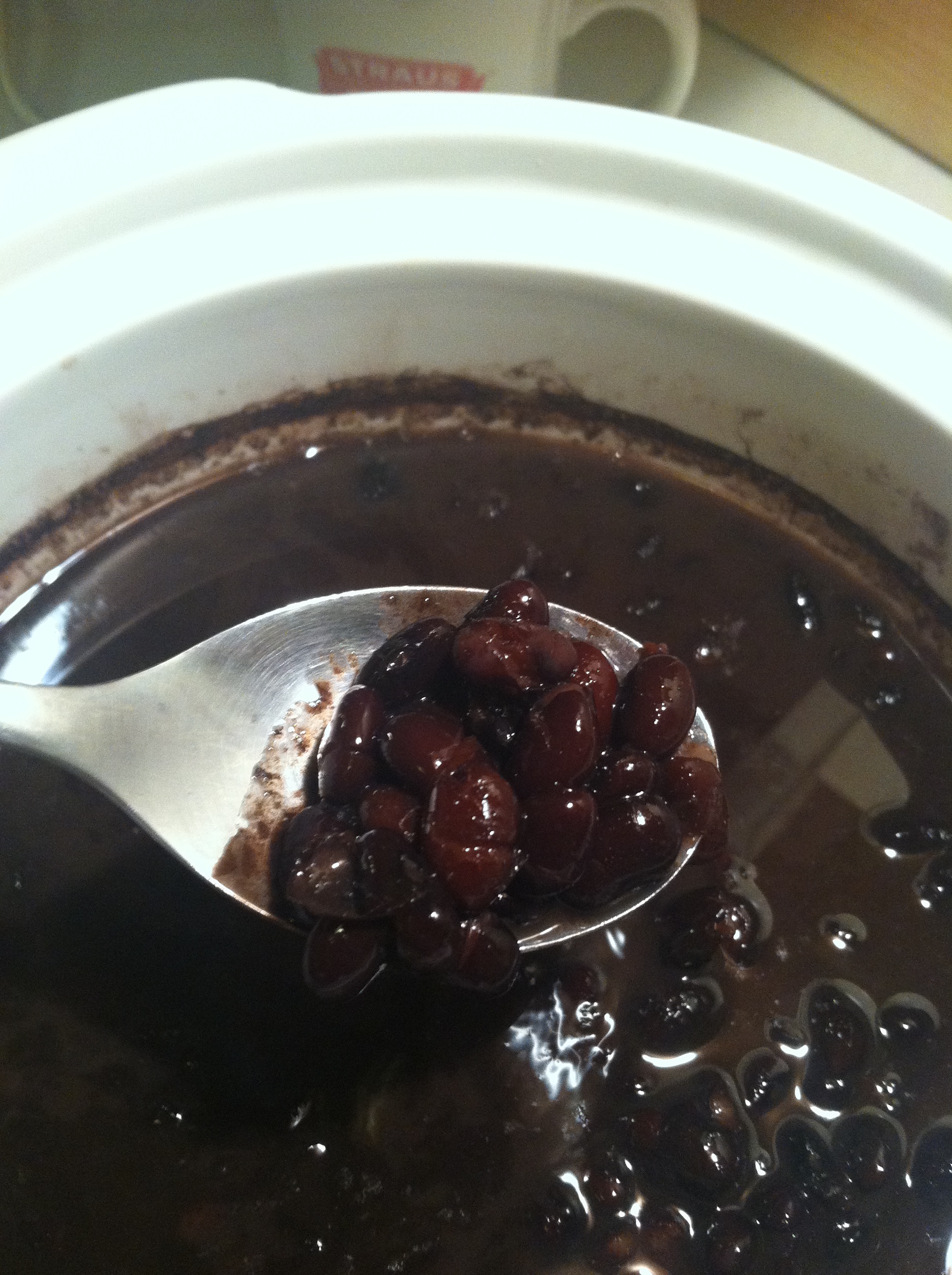
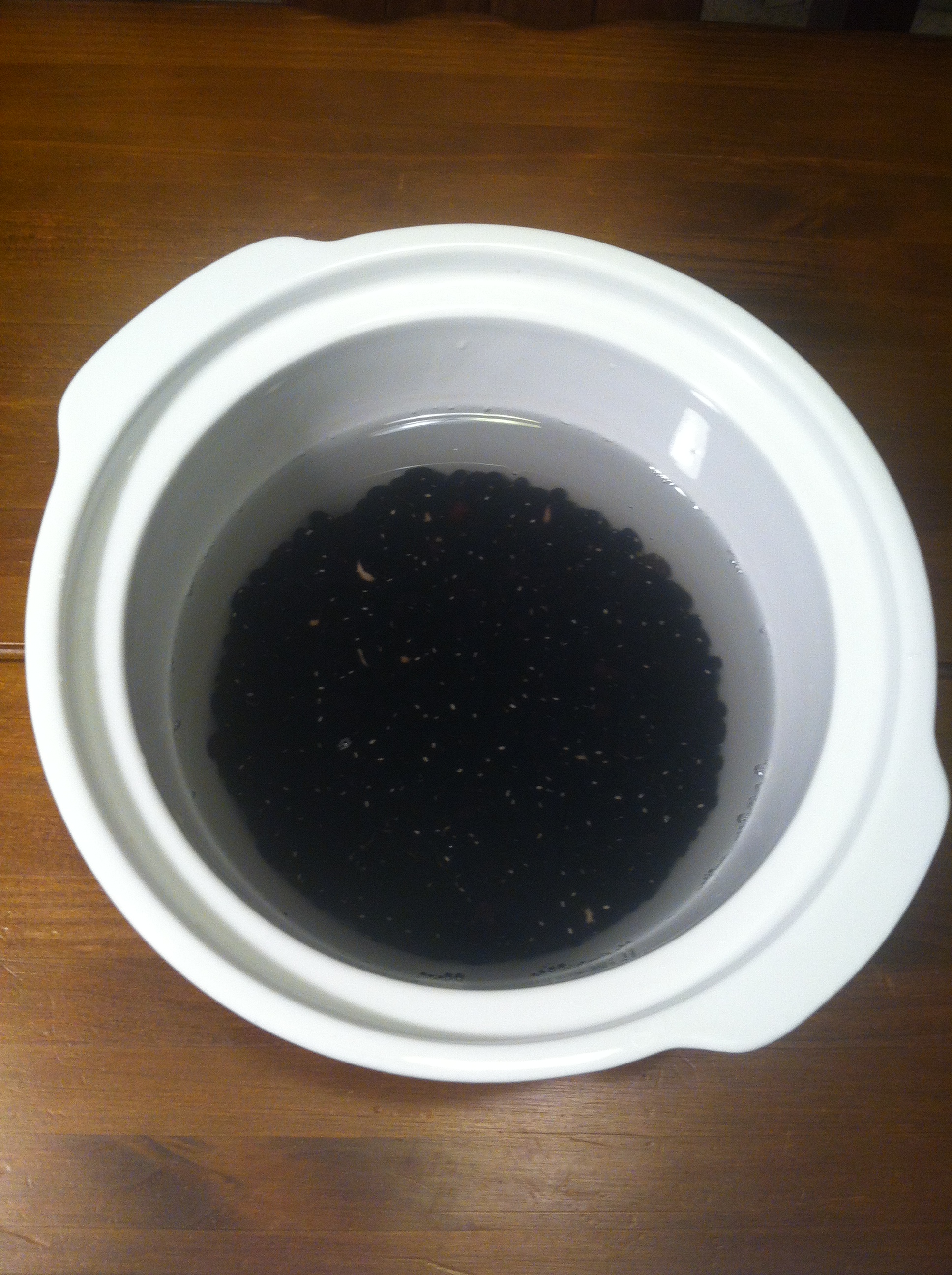
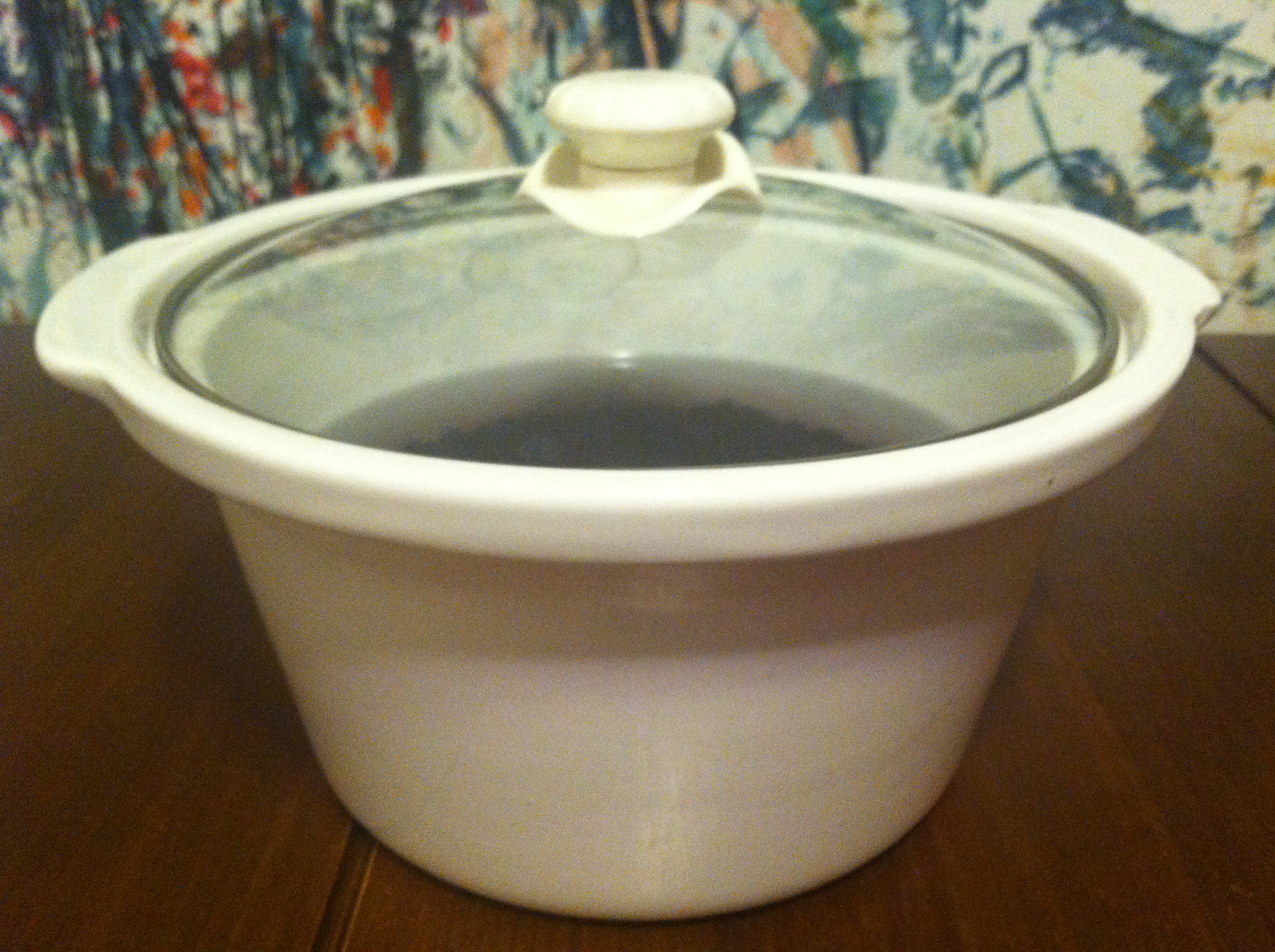

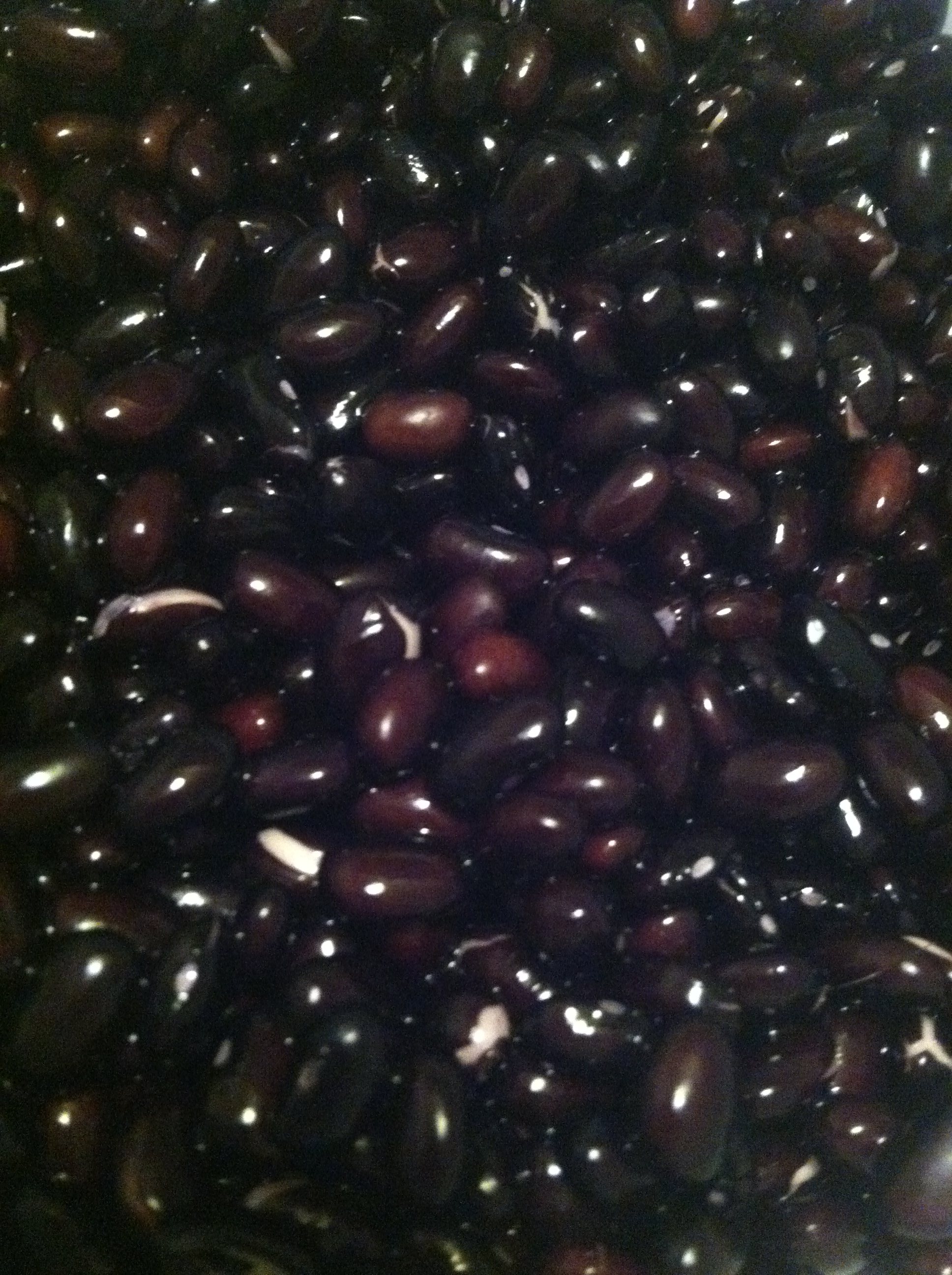


Eden Organics, say it isn’t so!
According to Eden’s website, the company has never lined its cans with BPA: http://www.edenfoods.com/articles/view.php?articles_id=178
Even so, home cooked tastes better and cuts down on trash.
Thanks for the comment 🙂
Reblogged this on Page & Petal and commented:
Oh, mama mia, thanks to / cursed by this innocent, helpful post about cooking dry beans, I’ll have yet another source of anxiety when I go to the grocery store: the potential toxicity of BPA-free (!) canned beans. I am internally weeping. Back to the bulk bins.
Well, think of it this way: Your beans will taste better 🙂
Thanks for the reblog!
Are you aware that some beans should be fast boiled for 10mins to remove toxins? Slow cooking will not do this as it doesn’t get hot enough, and in fact will make them even more toxic, such as red kidney beans. http://www.foodreference.com/html/artredkidneybeanpoisoning.html
Thanks for that link, Jack. I have heard that about red kidney beans. I soak mine overnight before I cook them. Doesn’t that mitigate the problem (I hope…)?
I believe the hard 10 minute boil is the ONLY way to guarantee toxin removal. Less than a boil can even increase toxicity in some cases!
Saw this article via another blog I follow (Thrifty Lesley): http://www.independent.co.uk/life-style/health-and-families/features/beware-of-the-beans-how-beans-can-be-a-surprising-source-of-food-poisoning-931862.html
Thanks for that info. I’ll check it out 🙂
Did you get any more info on this? And if you then recook your beans in a recipe, chilli or casserole, wouldn’t that take care of the problem?
I read the article in the link but don’t have any other info. I have been using my pressure cooker to cook beans (it was a mother’s day present) and it works really well. Here’s the post on that if you’d like to know more: https://zerowastechef.com/2016/05/18/how-to-cook-beans-in-a-pressure-cooker/
If beans are improved by a 10-minute boil, wouldn’t the fast soak method work here? It’s boiling for 10 minutes then sit for an hour. One could fast soak and then freeze somefor the next week’s batch, to cut down on the energy needed to boil.
I think of holding tome soaked beans over because I have a smallish pressure cooker.
If one has a large cooker, freeze cooked beans.
Oh sure Robyn, you could do a quick soak. I have frozen cooked beans. It works well. I haven’t frozen quick-soaked beans. I’ll have to try it. I’m going to have to write a big long post one of these days just about beans. It could be a book really! ~ Anne Marie
Do you ever worry about possible heavy metals, or even the plastic coating used in slow cookers? At some point I get overwhelmed with number of possible health considerations in preparing food.